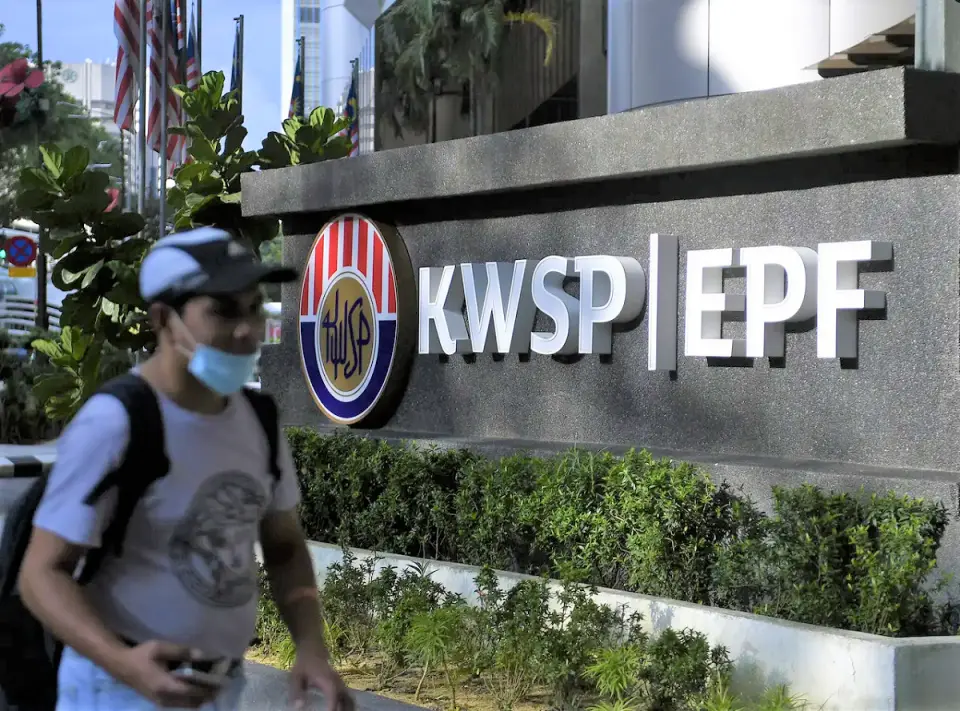KUALA LUMPUR, March 2 — The Employees Provident Fund’s (EPF) stellar performance in 2021 is in line with improved global and domestic economic conditions, which further reinforced its reputation as a well-managed pension fund management institution, said economists.
The EPF has declared 6.10 per cent dividend for conventional savings for 2021 with a total payout of RM50.45 billion, surpassing the 5.45 per cent dividend declared during the pre-pandemic year in 2019.
Bank Islam Malaysia Bhd chief economist Mohd Afzanizam Abdul Rashid said, more importantly, the fund’s portfolio diversification strategy by investing in the global market had really paid off.
“This would allow EPF to navigate the investment climate which is highly uncertain. Support from its highly experienced fund managers and analysts as well as strong governance and stringent investment process has also helped the institution achieve better-than-expected dividend rate,” he told Bernama.
With gig economy workers now able to contribute to the EPF indicates that the informal sector is getting the right attention from the policymakers and necessary measures have been implemented to ensure their retirement needs are taken care of, he said.
Sunway University economics professor Prof Yeah Kim Leng opined that the EPF’s sustained performance will be helpful in strengthening the confidence of its contributors, including those from the gig economy.
He said widening its coverage to gig economy workers will be an important measure to provide an adequate social safety net for all Malaysians, especially the low-income groups.
“A sizeable proportion of the EPF contributors have relatively small balances in their EPF accounts due to early withdrawals and low salaries.
“This vulnerable group will need to rebuild their retirement savings without which the country will face an old age poverty issue in the near future,” he added.
Yeah said despite the withdrawals of more than RM100 billion under the Covid-19 stimulus packages and pandemic-induced economic downturn, the EPF’s strong performance in 2021 enabled the distribution of real inflation-adjusted returns of 3.6 per cent, which will be much welcomed by its sizeable pool of savers.
Meanwhile, Putra Business School associate professor Prof Dr Ahmed Razman Abdul Latiff said the EPF not only has the role in restoring the nation’s economy but also ensuring that its members get assistance in terms of withdrawal of contribution so that they are not at risk of being bankrupt and can continue their livelihoods.
Nevertheless, he said the withdrawal schemes are short-term measures and would not resolve the structural issue in providing a financial guarantee for retirement.
“Other countries that allowed the withdrawal of retirement savings such as Australia and Chile also have stopped doing so, but Malaysia still continued until the end of last year.
“On the back of a better sign for finances, rising economic indicators and high commodities prices, Malaysia focuses on increasing the contributors’ savings to enable them to retire with sufficient funds,” he said.
For the record, members’ savings are at a critical level as about 50 per cent of those below 55 years old have less than RM10,000 for retirement, whereby 74 per cent are Bumiputera.
Ahmed Razman said if EPF withdrawals are allowed one more time, more Malaysians would fall into the B40 group, hence would need aid from the government and would burden it further.
He stressed that the EPF should only focus on channelling aid in terms of retirement only, considering there are several mechanisms that could be implemented to help those affected by the Covid-19 pandemic.
“There are various ways to increase workers’ contribution, among them in Budget 2022, reducing EPF minimum contribution rate from 11 per cent to 9.0 per cent. This reduction may encourage employers to increase salaries such as raising the minimum wage,” he said.
Touching on various EPF investments in 2021, he said 37 per cent of investments were outside of Malaysia which had generated high returns compared with domestic investments which somewhat declined last year.
For domestic investments of RM639 billion in 2021, Ahmed Razman said the EPF was the main pillar of the country’s economic growth.
For 2022, the EPF is committed to investing around RM64 billion in various domestic asset classes, he said.
“As a major investor in the Malaysian financial market, it will help in catalysing economic activities and continues to assist in restoring the economy.
“This will help encourage growth, create job opportunities as well as increase tax revenue for the country,” he added.
Ahmed Razman said with the reopening of international borders and vaccination rate among the best in the world, Malaysia is poised to recover this year.
— Bernama





